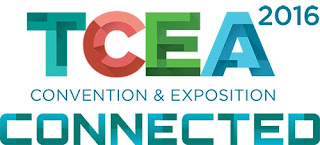When my supervisor mentioned this conference that we would be attending, I had little idea what to expect. I have been to conferences, and have attended events similar, but was not prepared to engage in what I learned would be a week long perpetual infusion of learning. It was, needless to say, a period of fast paced, no holds barred, presentations, key note speakers, exhibitions, and idea sparking innovation.
I took notes furiously and tried to capture everything on my iPad so that once it was over I might be able to digest everything I had taken in. I would like to share with you some of what I was able to glean from the best presentations I attended.
Google Apps Add-ons
One of the first presentation I attended was "Add-on Some Awesome Sauce" I enjoyed this presentation very much because it gave me a chance to see how some Google add-ons worked.
This slide shows which add-ons go with which Google Apps
Seesaw
Seesaw is a tremendously powerful tool for Teachers who are interested in increased communication with parents and building digital portfolios for students. This presentation included a video that described how Seesaw is used and various customizations that are supported through the app/web based version.
 Adobe Voice is a tool that captures a student's audio recording as they narrate a picture slide show. Here is an example that I made: https://voice.adobe.com/a/kMjj0/
Adobe Voice is a tool that captures a student's audio recording as they narrate a picture slide show. Here is an example that I made: https://voice.adobe.com/a/kMjj0/ Adobe Post is a great resource for digitally presenting research or learning that a student has done in an easy to use graphic creator. Here is an example I made:
Adobe Post is a great resource for digitally presenting research or learning that a student has done in an easy to use graphic creator. Here is an example I made:  Adobe Sleight is a great way to make learning visible with a blog style customizations and options. Here is an example of one that I made: https://slate.adobe.com/cp/nRrX5/
Adobe Sleight is a great way to make learning visible with a blog style customizations and options. Here is an example of one that I made: https://slate.adobe.com/cp/nRrX5/
TCEA was a great conference where I learned a lot and was able to meet lots of other porfessionals that share my passion for tech integration.















